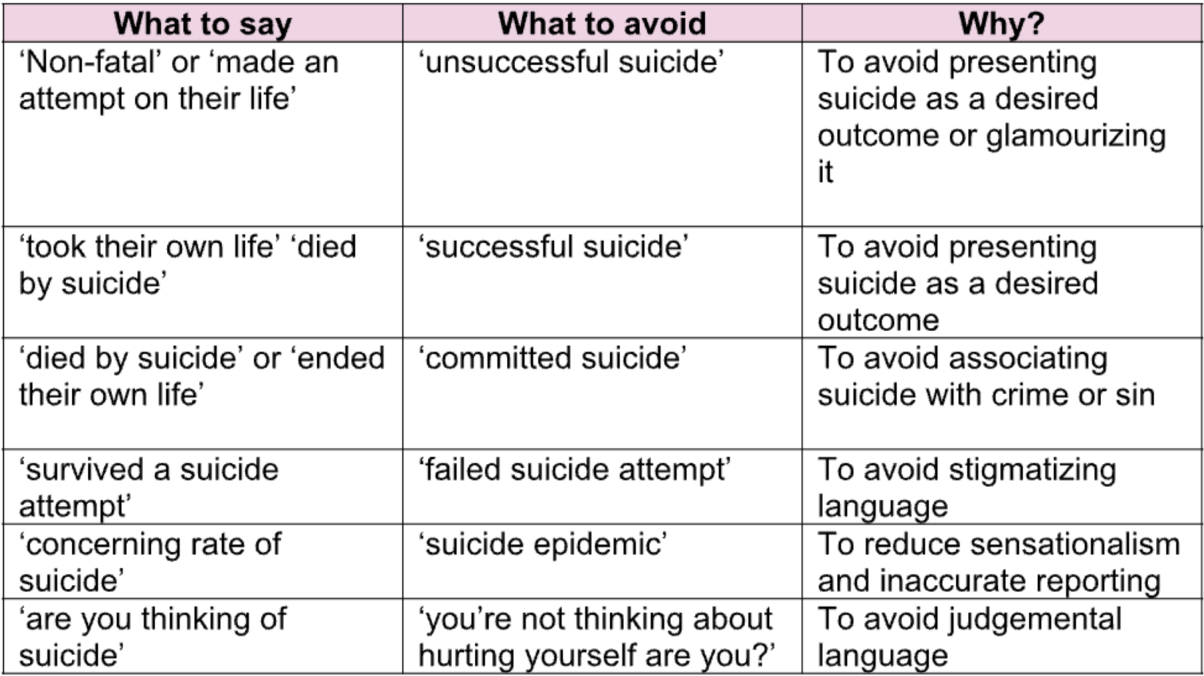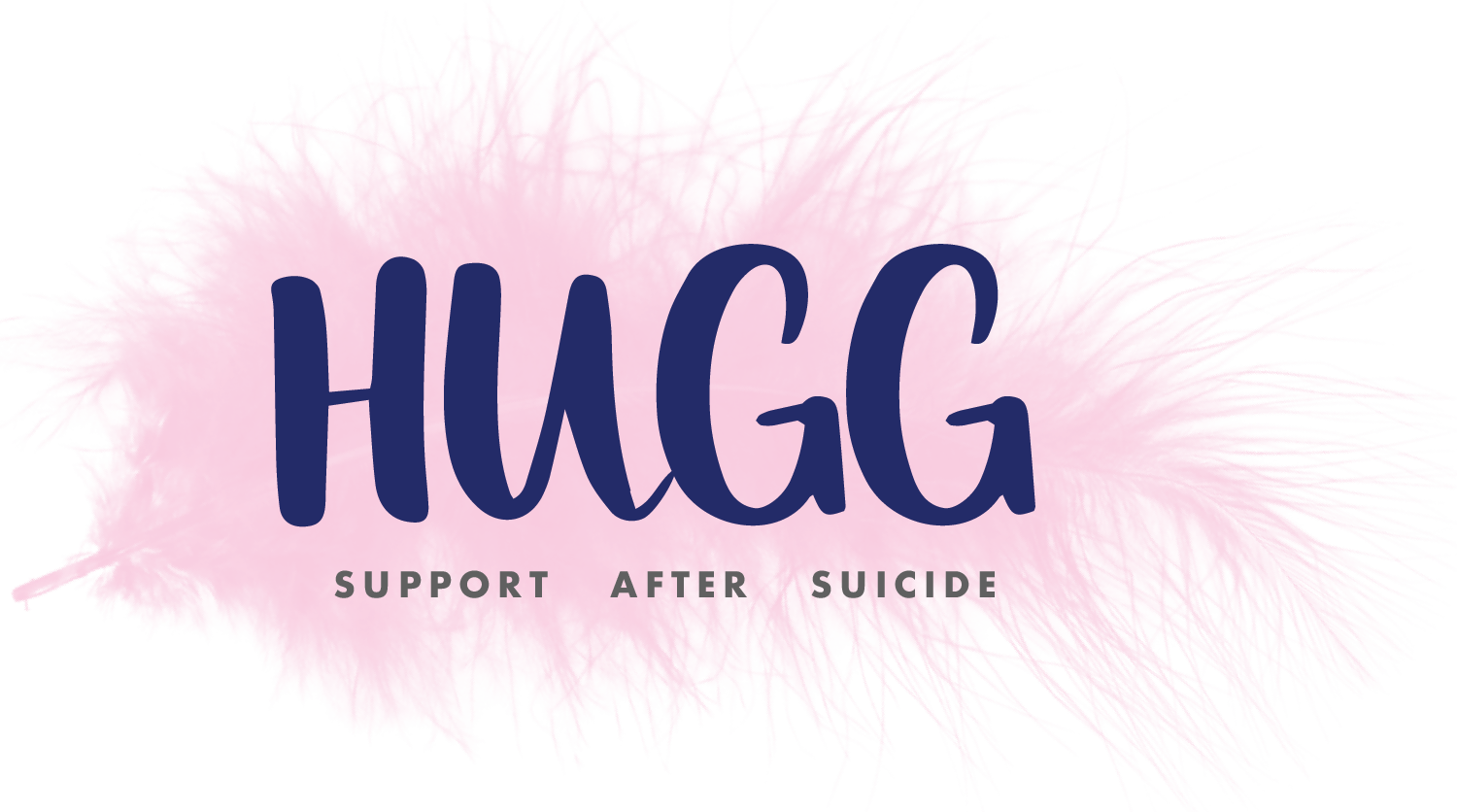
Suicide can be an uncomfortable subject to talk about for a lot of people. It can be hard to know what to say to someone who feels suicidal or who has been bereaved by suicide. It’s important for people to talk about suicide and to think about how to talk about suicide. Some of the language commonly used to describe suicide comes from the past and can have a negative impact on people who feel suicidal or people who have been bereaved by suicide. Some of that language can come across as judgmental and shaming. That kind of language increases the stigma for people who have been suicidal and for their loved ones.
Stigma is when there is a negative view of something in a group or society. Language around suicide, like all language, is constantly developing. If you are unsure of a word or phrase you want to use is suitable try to think how it would sound to someone who is suicidal, or their family. If you are in any doubt, avoid using it.
The topic of suicide
The topic of suicide should always be approached with care and compassion. It is important to use sensitive and non-stigmatising language when engaging in a conversation, talking or writing about suicide. Using language and words that are helpful and respectful, will encourage open and safe conversations about suicide to create environments that are free of stigma, judgment or prejudice.
Use person-centered language
The topic of suicide should always be approached with care and compassion. It is important to use sensitive and non-stigmatising language when engaging in a conversation, talking or writing about suicide. Using language and words that are helpful and respectful, will encourage open and safe conversations about suicide to create environments that are free of stigma, judgment or prejudice.
Never use ‘a suicide’ as a noun to describe a person. Use phrases such as
- A person who has died by suicide…
- People bereaved by suicide…
- Person impacted/affected by suicide…
- People with lived experience related to suicide…
Do not use phrases such as
- A suicide…
- A suicide victim…
Use non-judgmental terms
- Using the term ‘commit suicide’ can imply a sin, criminal offence or act, and therefore can be stigmatising – of the person who has died, or of people who have been bereaved. The act of suicide was decriminalised in Ireland in 1993 and the term ‘commit/committed suicide’ should always be avoided.
- It can be sensitive and appropriate to refer to a death by suspected or suicide, especially in the early days. It can take some time for the authorities to find evidence of death by suicide (or not), and officially record a persons’ death as intentional (or not).
In general, use neutral and simple terms such as
- Die by suicide…
- Died by suicide…
- Death by suicide…
- Ended his/her/their own life…
- Do not use terms that present suicide a desired outcome, such as;
- Successful/unsuccessful suicide…
- Completed suicide…
- Incomplete suicide…
Avoid other harmful language.
Avoid other excessive or gratuitous use of the word suicide. For example, phrases like ‘suicide hotspot’, ‘suicide epidemic’ or ‘suicide mission’. These are insensitive and inappropriate. They can be harmful for people who are vulnerable themselves, or for people who have been bereaved by suicide.

More information – Media
Samaritans Ireland Media Guidelines for Reporting Suicide
Research evidence shows that certain types of media depictions, such as explicitly describing a method, sensational and excessive reporting, can lead to imitational suicidal behaviour among vulnerable people. Samaritans Ireland Media Guidelines for Reporting Suicide have been produced following extensive consultation with journalists and editors throughout the industry. They promote the highest standards in reporting, depicting or discussing suicide. https://www.samaritans.org/ireland/samaritans-ireland/about/ireland-media-guidelines-and-online-safety/media-guidelines-in-ireland/
Headline
Headline is Ireland’s national programme for responsible reporting, and representation of mental illness and suicide. Their objective is to work as collaboratively as possible with Irish media professionals across print, broadcast, and online platforms to reduce the effects of suicide contagion, and the stigma attached to mental ill health. https://headline.ie/






